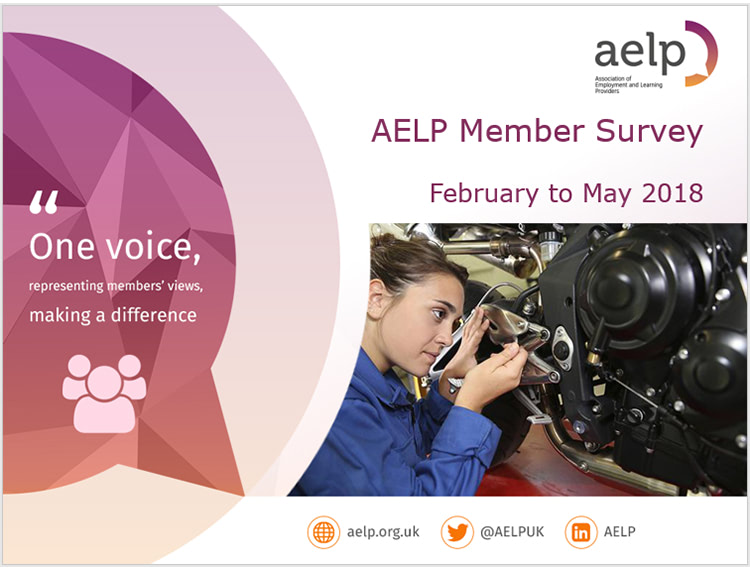Training providers confirm why the apprenticeship reforms aren’t going well

Non-levy funding insufficient to meet SME employer demand, finds AELP survey.
Training providers, who serve 380,000 employers across the country, have confirmed that there are serious issues to resolve in the roll-out of the government’s apprenticeship reforms.
Confirmation of the principal concerns go a long way to explain why the latest official set of apprenticeship start numbers are over 50% down on a year ago.
In a survey of members published at its annual conference, the Association of Employment and Learning Providers (AELP) found 70 to 80% of providers reporting that:
- employers are struggling to understand and engage with the new apprenticeship system
- non-levy funding is insufficient to meet SME employer demand
- not enough new apprenticeship standards are in place
- a lack of available programme end-point assessment is a concern.
The Institute for Apprenticeships has now introduced its ‘Faster and Better’ process for approving standards but the survey reveals that 60% of providers are still doing the bulk of their training under the old apprenticeship frameworks. Only 27% have been able to move the majority of their provision to standards.
On non-levy funding, the government has allocated up to £650m for the 15 months of January 2018 to end March 2019, but last year SMEs were accounting for approximately £1bn of the total apprenticeship budget over a 12 month period and so they have seen the funding available to them cut dramatically.
AELP CEO Mark Dawe said:
“None of these findings come as any surprise as we’ve been feeding back similar anecdotal evidence for months from regional meetings to ministers and officials on why apprenticeship starts have been dropping so sharply. But while AELP remains supportive of the apprenticeship policy, the levy itself and standards, the survey results do underline the sheer scale of the challenges and the urgent need to make changes to the way that the apprenticeship reforms have been introduced.”
Over half of providers are changing how they are delivering apprenticeship training in response to the reforms. 55% of them are moving their provision across to a different sector or occupational area, while 53% are seeing their delivery switch over more to the large levy-paying employers. 42% of providers say that the reforms are prompting them to run more higher level apprenticeship programmes in response to employer demand.
The survey identified that AELP member providers are working with 380,000 employers across the country to meet their skills needs.
Mark Dawe said:
“The switch to more higher level apprenticeships is good for the programme’s reputation but we have to get the balance of provision right from level 2 to levels 6 and 7. As the recent AELP policy submission showed, it’s vital for a post-Brexit economy and social mobility that lower level provision isn’t abandoned and this means getting the way it’s funded right.
“This is why AELP is calling for an immediate suspension of employer contributions for 16 to 24 year apprentices at levels 2 and 3 by non-levy payers or those employers that exceed their levy.”
Providers highly satisfied with their AELP membership
Following the conference announcement by AELP chairman Martin Dunford OBE that the number of AELP members now tops 900, the survey found that 89% of members are satisfied with AELP. 84% believe that the Association offers good value for money with a further 13% holding a neutral view on the matter.
Satisfaction with membership services is particularly high with 90% of members happy with AELP in this regard. The quality of AELP’s research is also increasingly valued.
Mark Dawe added:
“With apprenticeship numbers declining and therefore providers’ incomes falling, AELP has to be delivering good value for money if it wants to keep its members on board. Therefore it’s very encouraging to see these survey findings and membership go up by a 100 in a challenging year.
“The AELP team are working extremely hard to secure desired policy outcomes and provide excellent service. We are also very grateful for the support that so many of our member providers give in helping to articulate policy solutions based on their frontline experience and expertise.”











Responses